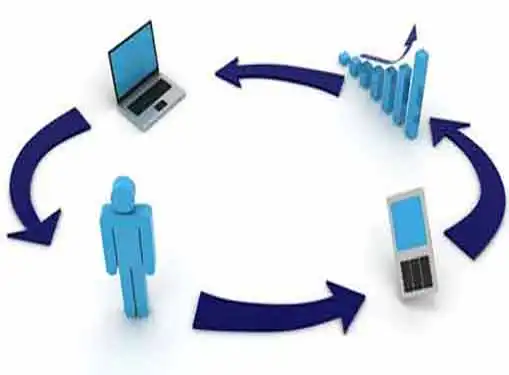Starting Online Businesses
Internet Businesses Require Business Models Too
Written by James Garvin for Gaebler Ventures
You know the internet super stars -- Amazon, Ebay and Twitter. What makes these internet businesses successful? A business model. Learn from the success of these companies when developing a business model for your new business.
You've all heard of them. Amazon, Ebay, and Google were internet superstars born in the web 1.0 era.

Now we have Facebook, LinkedIn, and Twitter in our web 2.0 era of superstars. What factors drove the success of these organizations and what can you learn from them to apply to your own online venture?
We can separate out internet successes into two categories: 1.) Those with a revenue and business model from day 1 2.) Those that those generate a massive amount of users, but don't generate any profits.
Of the web 2.0 superstars mentioned above, only LinkedIn is profitable. Twitter has not generated a cent in revenue and Facebook, now going on its 6th year has yet to turn a profit.
So which model do you go after when launching your online venture? If it was 1998, anything that would garner a user base would do, but today we're in different times. Many entrepreneurs forget that online businesses are businesses that require the same fundamental business management and practices as offline businesses. A business cannot be sustained over the long term if it is not profitable even if you have hundreds of million of users.
The web 1.0 superstars that survived and thrived through and after the internet bubble burst did so because they had a sustainable business model. Amazon, Ebay, and Google all generated revenues from day one of setting up their business.
Of course some say Google stumbled upon their business model after the fact that Larry and Sergey developed their search engine, but the point is that they had a business model, and with out it, Google would not be around today, no matter how many people were using it to search the World Wide Web.
Ebay established a highway toll that enabled them to generate revenues off of every transaction made on their website. Amazon, the all might e-retailer sold generic products, but focused on enhancing customer experience to differentiate from other retailers and to build customer and brand loyalty.
If you are starting or looking to start an online business, first start with the business and revenue model. How are you going to generate revenue and profits? What is your competitive advantage that will make your business succeed in the sea of millions of other websites just like yours on the web? Setting up a website simply to generate users and thinking that you can figure out a business model later is like finding a needle in a haystack.
If you are truly looking to be a successful internet entrepreneur, start with the business fundamentals and work outwards. If you have an established revenue model that can be scaled from day one, then you are much more likely to be on the high road to success.
James Garvin began his education studying biotechnology. In recent years he has turned his interest in technology to helping two internet startup companies. The first business was an online personal financial network and the second was an e-marketing platform created to help entrepreneurs demo their web sites. Currently a student at University of California Davis, James is spending his summer incubating two new online businesses and writing about his entrepreneur experiences.
Share this article
Additional Resources for Entrepreneurs

Conversation Board
We greatly appreciate any advice you can provide on this topic. Please contribute your insights on this topic so others can benefit.